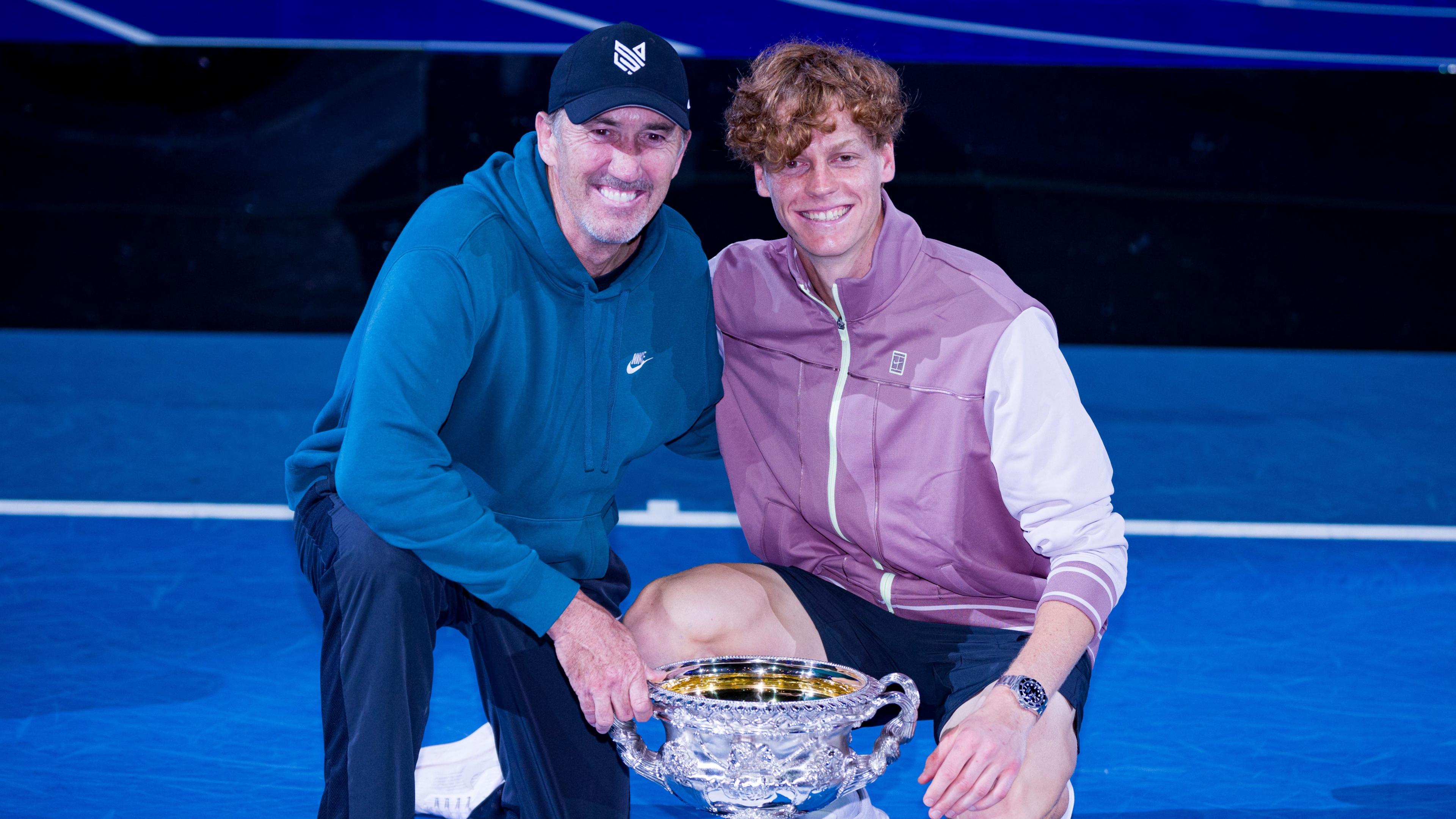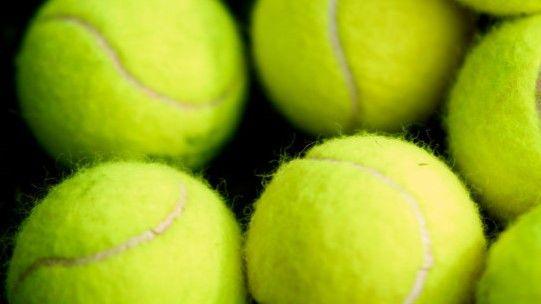Sinner 'worn down physically and mentally' by investigation

Darren Cahill joined Jannik Sinner's team in July 2022
- Published
Jannik Sinner has been worn down "physically and mentally" by the investigation into his positive tests for a banned substance, says the world number one's coach Darren Cahill.
The Italian twice tested positive in March for clostebol - a steroid that can be used to build muscle mass - but was cleared of fault or negligence by an independent tribunal last week.
The International Tennis Integrity Agency (ITIA) found Sinner was inadvertently contaminated with the substance by Giacomo Naldi, his physiotherapist.
Since first alerted about the doping violations in early April, Sinner has won tournaments in Halle and Cincinnati and become world number one for the first time in his career.
"I guess if you are not a Jannik fan, you may not see too much difference in what he has been doing the last few months because he has still been playing quite well," Cahill told his ESPN colleague Chris McKendry.
"But if you are a Jannik fan, you would have seen a big change in his body language, physicality on the court, his excitement to be on the court - he’s struggled and I think it’s worn him down physically and mentally.
"He got tonsillitis, which is the reason why he missed the Olympics.
"I just want to stress that he’s maybe the most professional young man that I have ever had the chance to work with. He would never ever intentionally do anything, and he’s in a situation that is incredibly unfortunate."
The World Anti-Doping Agency told BBC Sport it "will review this decision carefully" before deciding whether to appeal - an approach it takes in all such cases.
Some players have taken to social media to claim Sinner has been treated differently because he is the world number one.
And 18-time Grand Slam singles champion Chris Evert says she believes the authorities do protect top players.
"They're going to keep certain things secret if you're a top player because they don't want the press, the player doesn't want the press," Evert said on a conference call before ESPN’s US Open coverage.
"I do think there's some [more] protection there than if you were Joe Smith, ranked 400 in the world."
Sinner's lawyer has denied his client received special treatment.
"It’s perfectly reasonable to wonder that, but I think it’s actually the reverse," Jamie Singer told BBC Radio 5 Live.
"Because he was such a superstar, the ITIA took it exceptionally seriously. But it was independent tribunals making those decisions, and that’s the critical piece here - nobody within tennis decided this, independent judges decided this.
"It’s had a huge impact on him. He’s been a different character over the summer, he’s been much more introverted.
"Jannik personally never did anything wrong. This is a mistake the physio made, and so he’s living with all of this scrutiny because a physio made a mistake."
Sinner cleared after testing positive twice for banned substance
- Published20 August 2024
Sinner beats Tiafoe to win Cincinnati Open title
- Published20 August 2024
20/08/2024
- Attribution
Incident raises questions
Physio Naldi cut his finger on a scalpel shortly after the team arrived in Indian Wells in early March. He was offered a medical spray used for healing cuts by Sinner’s fitness coach Umberto Ferrara, who had bought it over the counter in Italy for his own personal use the previous month.
Naldi used it for a nine-day period, during which he was giving Sinner massages and foot treatments without using gloves. The independent tribunal accepted Sinner had inadvertently ingested the banned substance through lesions on his skin.
This throws up a number of questions for the support team. Ferrara is a qualified pharmacist, who takes the lead on anti-doping issues, and knew the hand spray contained a banned substance.
He claims he warned Naldi about this - a view supported by the tribunal - but the physio says he has no memory of that conversation, did not check the contents of the spray and could not remember whether he always washed his hands after application.
"Umberto has been in the game for 15 years. He’s got degrees, he’s owned a pharmacy in Italy and he’s in charge of Jannik’s anti-doping, diet and physical training," Cahill added.
"I’m sure he had it for his personal reasons, and probably should never have passed it on to Giacomo."
Cahill added the team are deciding whether the two men should come to the US Open, which starts on Monday. And Sinner, who was spared a ban because the tribunal felt he had been doing everything in his power to reduce the risk of a doping offence, will then need to decide whether it is appropriate to continue the relationships.
The speed of the process has also taken many by surprise. There were fewer than five months between the discovery of a positive test and an outcome, while Simona Halep waited a year for a verdict from the initial tribunal, and Britain’s Tara Moore more than 18 months.
There is no doubt both of those cases were far more complicated, and the top players can throw much more money at the problem.
While Sinner was able to pay a legal team to prioritise his case, Moore had to set up a fundraising page to cover “food, travel, and ongoing legal fees” on her return.
Related topics
- Published16 August

